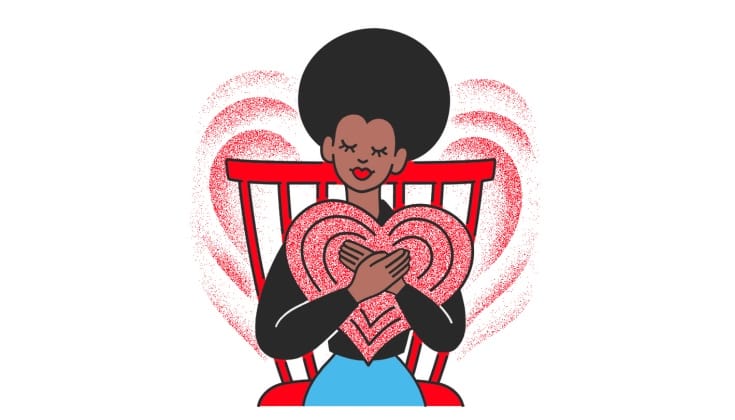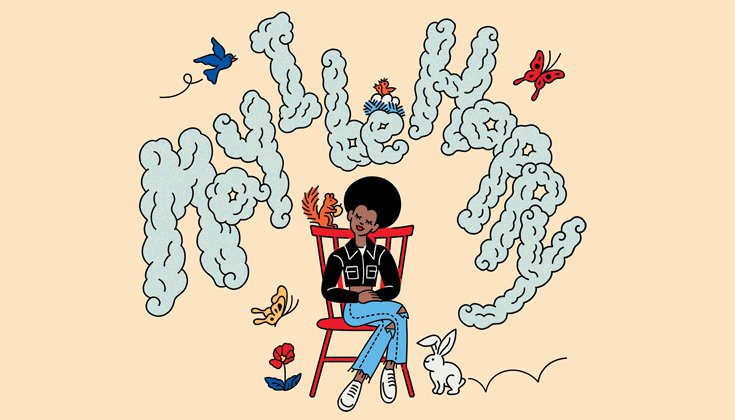When I was introduced to the practice of metta—most often translated as loving-kindness practice—I definitely knew it wasn’t for me. It was too mushy and sentimental for my pragmatic mind. It was reminiscent of the wishful praying that I thought was reserved for the type of faith I had left behind.
I didn’t really believe that I—or maybe any living being—could possibly find the happiness, safety, ease, and freedom being offered through metta practice. Maybe we didn’t even deserve it! When I put my hand on my heart, as we are often asked to do during this practice, I felt numb and disconnected. I thought of loving-kindness as an unnecessary additive to the more important four foundations of mindfulness. I ignored the practice for many years.
Then, a wise and insightful teacher saw me struggling and assigned metta as my daily practice for three months. It wasn’t because my teacher thought I was not a kind and loving person—I am—but I needed a way to love all beings, and to offer that love to myself too.
I discovered that while loving-kindness is taught in many ways by different teachers, ultimately it is an equalizer and an antidote to hatred and aversion. It is a state that can be developed through practices that help us cultivate the unconditional, expansive qualities of the heart. Metta is the great balancer to insight and mindfulness practices.
When I discovered other translations of the word metta, like care, friendliness, goodwill, and benevolence, the practice began to feel more accessible and less lofty. Metta felt like something I could touch and cultivate daily. The great balancer began to do its work. My doubt began to melt.
In trying times such as these, it seems difficult to imagine that we could soften our hearts and find love amid all of the suffering we hear about daily. Yet, the prescription of the Buddha is that even in the darkest of places and times, our heart-mind has the capacity to be free from the burdens of hatred.
Here is a four-step instruction for metta. These steps are for practicing loving-kindness for yourself. You can also practice metta for others in different categories, such as people close to you, friends, people you are neutral toward, people you find difficult, and ultimately all living beings.
Initially, set aside 15-20 minutes to do the four steps. As you develop your practice, you can add more time as you wish. Setting a timer is helpful.

1. Put your body at ease.
Find a physically comfortable space. Sitting in a comfortable chair or lying down is helpful. If you feel at ease on a meditation cushion, that is fine too. The idea is to find a posture that allows the body to be in as much ease as possible. Allow yourself to feel held and supported by whatever you’re sitting or lying on. Closing the eyes can help to facilitate ease. If that’s not comfortable, then allow the eyes to be open and gazing softly at a singular point.
2. Soften the belly and chest.
Intentionally soften the belly to start. Feel the expansion and contraction as each breath fills the belly and chest area. Allow your breathing to facilitate space in your belly and chest area. Take your time; there’s no rush. If you feel tension, that’s okay.

3. Recall feelings of love and kindness.

Focus on the heart area. Placing your hand on your heart can add to this step. See if you can recall feelings of care, kindness, and friendliness. Let them permeate your heart area. Stay with this while moving into the next step. If the feelings seem inaccessible or difficult right now, stay with the spaciousness and breathing into the belly and chest areas.
4. Do the recitation.
Reciting phrases is a classic way of practicing metta. Whether we believe the phrases in the moment or not, it’s still useful to say them; they give the heart and mind something to land on and to aspire to. You can express them in any way you want, with these basic sentiments in mind. Repeat these phrases for the length of your practice period:
May I be safe
May I be healthy
May I be happy
May I be at ease
May I be filled with loving-kindness
May I be peaceful
In metta practice, it is normal for the doubting mind to pop up and challenge the notion of loving ourselves and others. Don’t let this doubt stop you. It is important to know that metta is not a practice of perfection, but one of cultivation. This is our practice—freeing our heart and mind from the clutches of fear, hatred, and confusion, regardless of what is happening in the world around us. I am happy to report, after trying it myself, that this skeptic is now convinced!

